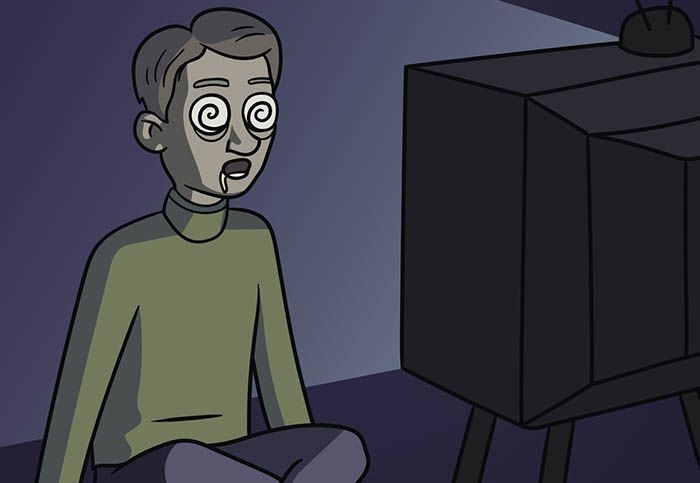Remember the age-old discussion about how violent video games lead to violence occurring?
The question is: is it the same with mental illness and the media discussing it? Does the media discussing mental illness encourage or prevent it?
Media responsibly discussing mental health can change lives for the better.
Popular media affects many people from all walks of life, whether man or woman, children or elderly. It can be a game-changer in changing the views of the general public. So, does that mean that media should not portray characters and storylines that portray mental illness and suicide? No, mental illness should be portrayed accurately and responsibly in media. Here are the reasons why.
Firstly, seeing people go through tough times can be encouraging.
For example, a fourteen-year-old girl may be going through a really tough time; it seems like it’s all over; there’s no light at the end of the tunnel—no hope to keep going.
And then she sees other people going through or have gone through the same thing she’s going through. And she is thriving. Living.
Inspiring stories of going through hardship is the basis of humanity. Think about the rebels in the Revolutionary War. Think about the enslaved thirsting for freedom. Apollo 1 landing on the moon. For example, people like Harriet Tubman, Rosa Parks, Joan of Arc, Albert Einstein, and Jesus Christ.
These stories and people have inspired generations with their persistence and endurance through hardship, just like stories of people with mental illness will inspire many more generations with their stories.
Secondly, it encourages discussion about mental illness.
According to a study from Priory Group: “40% of men have never spoken to anyone about their mental health. 29% who haven’t done so say they are “too embarrassed” to speak about it, while 20% say that there is a “negative stigma” on the issue.”
This is because there is limited discussion about mental illness in general, leading to false biases and stereotypes that aren’t true, which leads to the next point.
And finally, it pushes back against false stereotypes.
According to some research by Time to Change shows that 90% of people with mental health issues experience some stigma just about anywhere, whether it be at work or even with friends and family. False stereotypes, such as people with mental illness are dangerous and unpredictable or that people with mental illness are to blame for those conditions, but that couldn’t be farther from the truth. People believe these stereotypes because that’s what they’ve been conditioned to think by false statements. But, if more media is showing how mental illness affects people, there would be fewer false stereotypes and prevent these mental illnesses from continuing to be perceived in incorrect ways.
Despite all that, some people still believe that if we portray mental illness in media or discussing it will make mental illness more prevalent, but that couldn’t be further from the truth.
A randomized controlled trial by clinical epidemiologist Madelyn Gould in 2005 produced some interesting results. Here is a quote from BBC on the experiment: “More than two thousand students at six high schools were given questionnaires to measure their mood and levels of distress. Half of them were also asked questions about suicidal feelings, which they could answer on a scale ranging from “I’ve never had this thought” to “This thought is on my mind almost every day.” Two days later, both groups were again given questionnaires to assess their levels of depression and distress, but this time, both groups were asked about suicidal thoughts. If discussing suicide is harmful, then the group asked about suicidal thoughts the first time around would show higher distress two days later. But in fact, they showed slightly less distress than the other group, possibly because they felt their feelings had been taken seriously.”
So, in conclusion, if mental illness is responsibly portrayed in media, it will encourage people to discuss mental illness, push back against false stereotypes, and ultimately change lives for the better.






